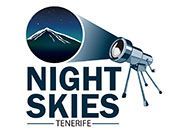See the Beehive Cluster from Tenerife
A Starry Swarm with Night Skies Tenerife
Hidden among the soft stars of the constellation Cancer, the Beehive Cluster (Messier 44) glows like a celestial swarm of fireflies. And from the elevated, unpolluted skies of Tenerife’s Teide National Park, this ancient star cluster becomes an unforgettable sight.
Join Night Skies Tenerife and observe M44 through high-powered telescopes under some of Europe’s darkest skies — with expert guides to show you the way.
What Is the Beehive Cluster?
The Beehive Cluster — also known as Praesepe, meaning “the manger” — is one of the closest open star clusters to Earth, sitting around 610 light-years away.
With more than 1,000 stars, many of which are similar in age and mass to our Sun, M44 is a glowing cradle of stellar siblings, easily seen as a soft patch of light with the naked eye in dark skies, and dazzlingly detailed through a telescope.
When to See the Beehive Cluster from Tenerife
The Beehive Cluster is a late winter to spring highlight, best viewed in the evening sky between January and May.
Where to See the Beehive Cluster in Tenerife
Tenerife’s Teide National Park is one of the best places on Earth to observe deep-sky objects like M44. At over 2,000 metres above sea level, this UNESCO Starlight Reserve offers exceptionally dark skies, low humidity, and minimal atmospheric interference.
Night Skies Tenerife uses exclusive viewing locations within the park — far from artificial lights — for crystal-clear telescope views of the Beehive Cluster and many other celestial sights.
About Night Skies Tenerife
At Night Skies Tenerife, we’re passionate about sharing the awe-inspiring beauty of the universe from one of the world’s best stargazing locations — Teide National Park, Tenerife.
Our mission is to create unforgettable stargazing and sunset experiences that blend science, nature, and wonder. With Tenerife’s unique low light pollution, high-altitude vantage points, and crystal-clear skies, we offer guests the chance to witness 83 of the 88 officially recognised constellations, breathtaking sunsets above the sea of clouds, and dazzling displays like the Milky Way and meteor showers.
Whether you're joining one of our guided Sunset & Stargazing Tours , opting for a self-drive adventure, or indulging in our private gourmet dining experience, you can expect expert guidance, top-of-the-line telescopes, and 5-star hospitality every step of the way.
We're proud to be Tripadvisor 5-Star rated, with thousands of guests describing their time with us as a highlight of their Tenerife holiday.
Join us under the stars and see why Night Skies Tenerife is one of the island’s most magical experiences.





